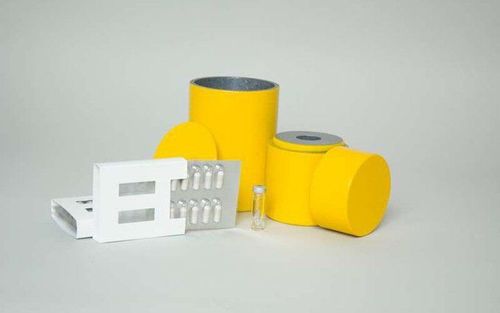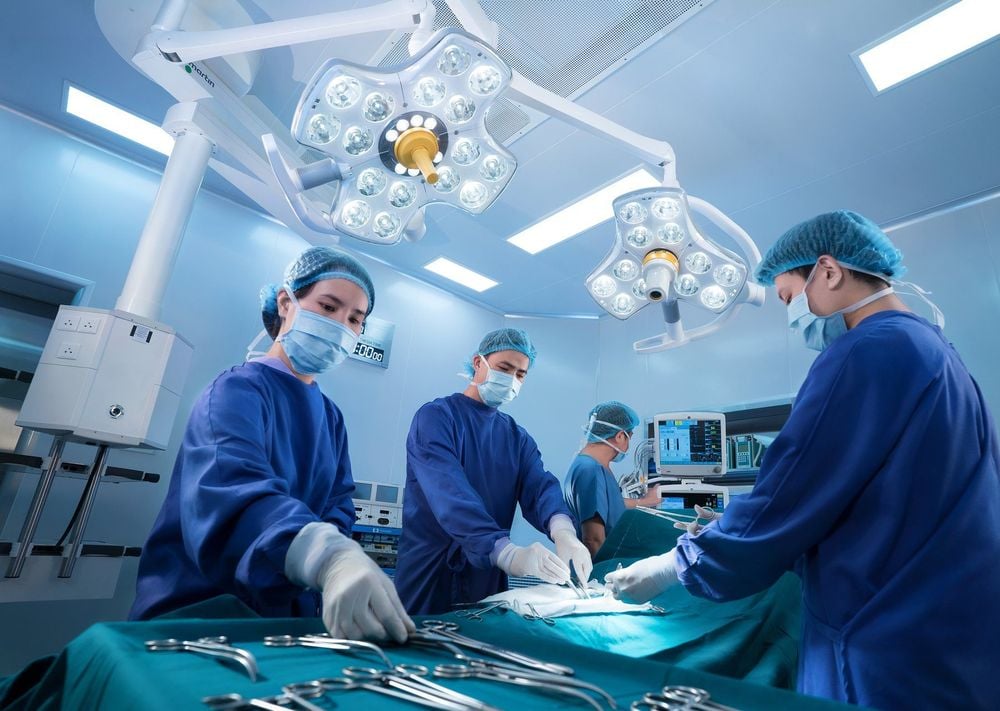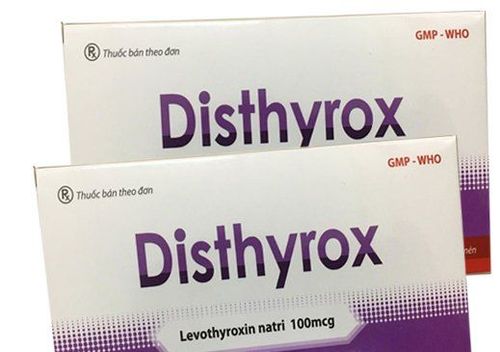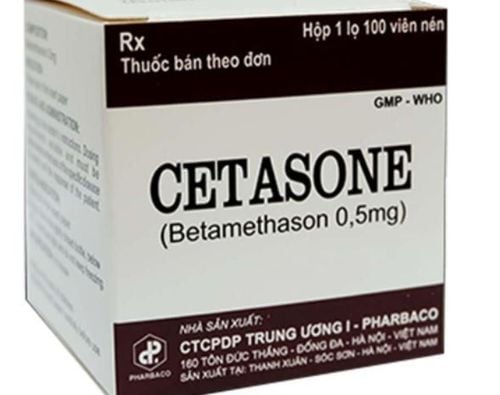This is an automatically translated article.
Hyperthyroidism is a pathological syndrome caused by increased levels of thyroid hormones (T3, T4) in the blood leading to changes in organs and tissues.1. What is Hyperthyroidism Syndrome?
Hyperthyroidism (hyperthyroidism syndrome) is caused by an overactive thyroid gland. The thyroid gland is one of the important endocrine glands located in the neck, secreting thyroid hormones that control a lot of the body's activities. When too much of this hormone is prescribed, it leads to symptoms of hyperthyroidism.
Hyperthyroidism is a common syndrome and affects more women than men. The disease can appear at any age, but the disease is less likely to present symptoms in the elderly.
2. Causes of Hyperthyroidism Syndrome
The most common cause of hyperthyroidism is Graves' disease (also known as Graves' disease). Basedow's disease is an autoimmune disease. In this condition, the thyroid gland is attacked, leading to hyperthyroidism. It is estimated that 80-90% of people with hyperthyroidism have Graves' disease.Other less common causes include: Multinodular goiter, toxic adenoma, thyroiditis, dietary iodine intake or overuse of synthetic thyroid hormone. A less common cause is a pituitary tumor.

Sử dụng quá nhiều i-ốt có thể gây ra hội chứng cường chức năng tuyến giáp ở người bệnh
3. Signs of hyperthyroidism syndrome
Feeling of palpitations: Feeling of the heart beating fast, strong in the chest, can feel chest pain, shortness of breath.
● Fear of heat: Due to the high basal metabolism, the body temperature of hyperthyroid patients is often higher than normal, so the patient often cannot stand places with high temperatures or hot weather.
● Diarrhea: Prolonged diarrhea can be a sign of hyperthyroidism, caused by frequent increased bowel movements.
● Hand tremors, weight loss.
● Goiter: The neck area, where the thyroid gland is enlarged, is caused by an enlarged thyroid gland.
● Sweat a lot: Hyperthyroid patients often sweat, even when not active and sitting still.
● Sleep disorders: People with hyperthyroidism often have trouble sleeping, restless sleep, sleep shorter than usual.
4. Treatment of hyperthyroidism
Usually, doctors treat hyperthyroidism by reducing the amount of thyroid hormone in the body. The amount of this hormone is reduced with the use of drugs, radiation or surgery.
4.1 Treatment with radioactive iodine, I131 Mechanism: Purpose: Treatment of Graves' disease and thyrotoxic goiter with 131I makes the thyroid goiter smaller, bringing thyroid function from hyperthyroidism to normal (normal thyroid) .

Điều trị cường chức năng tuyến giáp bằng iod phóng xạ
Patients with a confirmed diagnosis of Graves have not received any treatment, may have undergone medical treatment; have arrhythmia, diabetes, high blood pressure, heart valve disease. Patients must have high enough thyroid I131 concentration: I131 concentration after 24 hours: T24 > 50%: good treatment; T24 30 to 50%: treatable; T24 < 30%: must be given a high dose, the effect is poor, so no treatment. The thyroid tumor is not too big, if the goiter is too big, causing swallowing, choking, and breathing difficulties, surgery should be indicated to clear it up first.
Contraindications:
Pregnant women: Because I131 crosses the placenta, it will focus on the fetal thyroid and cause damage. Breastfeeding women: Because I131 can be secreted through the milk glands and is not good for the baby, if the mother is prescribed compulsory treatment with I131, the baby should be weaned. If the patient has a severe toxic state, it must be treated with medical preparation before stabilizing to avoid the risk of a thyroid storm. Patients must stop synthetic antithyroid drugs 1-2 weeks before, iodine preparations must be stopped for at least 1 month to increase thyroid iodine concentration, effective treatment.
Therapeutic effect:
Clinically, the therapeutic effect usually begins to manifest 2 to 4 weeks after the patient receives the therapeutic dose. The effect is maximal after 8 to 10 weeks, so it is advisable to evaluate the results of treatment after 3 months. The effectiveness of treatment is evaluated based on the criteria of functional symptoms, physical appearance, thyroid nodule status and ultrasound and scintigraphy tests to assess the size, structure, weight of the thyroid gland and other parameters of the thyroid gland. Quantitative testing of T3, T4 and TSH hormones to assess thyroid function status after treatment For Graves patients with cardiovascular complications, after 5 days of I131 treatment, it is necessary to give synthetic antithyroid drugs, treat heart failure and arrhythmias with vasodilators, re-examination after 1 month of I131 therapy.
4.2 Performing surgery Surgery is reserved for patients with enlarged thyroid glands, as they block or interfere with other structures in the neck area. Patients who do not want to use radioactive iodine can have surgery. Pregnant women may also need surgery.

Điều trị cường chức năng tuyến giáp bằng phương pháp phẫu thuật
5. Notes in daily life
Did you know that a daily lifestyle helps limit the progression of hyperthyroidism?
Pay special attention to protect your eyes, use eye protection and artificial tears and wear eye protection at night to avoid complications of the disease. Realize that effective treatment means long-term care is needed. Physicians must check for worsening of hypothyroidism (hypothyroidism) after treatment and the risk of recurrence of hyperthyroidism; See your doctor if you have a fast heartbeat, severe weight loss, diarrhea, or shaky hands and feet; Do not exercise until your disease is under control; No smoking; Hyperthyroidism may recur after surgery in 10% to 15% of patients. Any questions that need to be answered by a specialist doctor as well as if you want to be examined and treated at Vinmec International General Hospital, you can contact Vinmec Health System nationwide or register online. online HERE.













